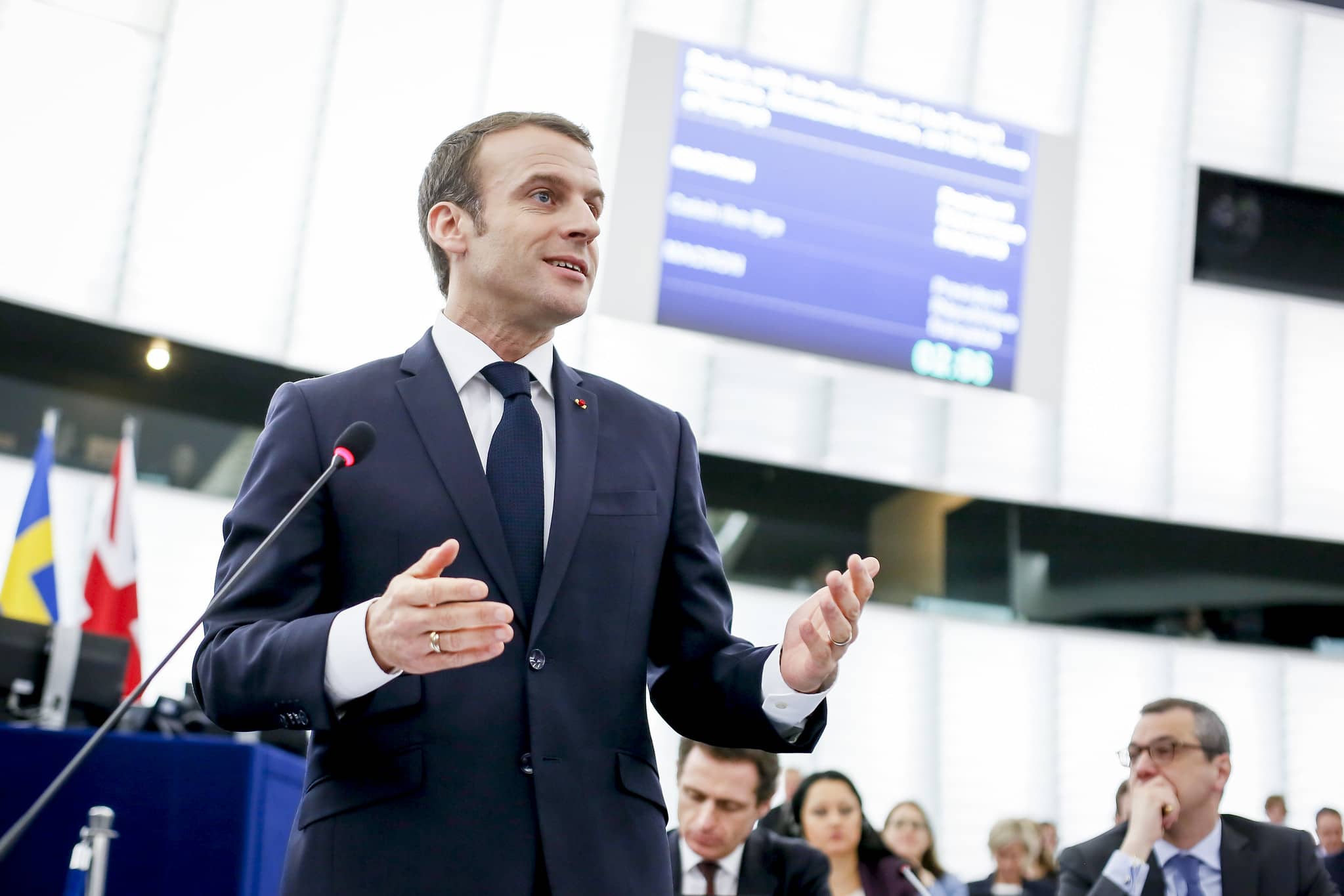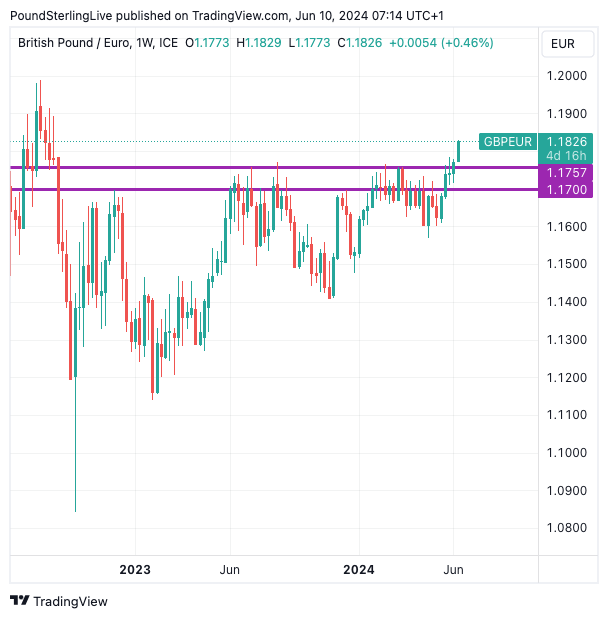GBP/EUR Rate Powers to 34-month Best on Rising EU Political Instability
- Written by: Gary Howes

Above: Emmanuel MACRON, President of France. Copyright: European Union.
The Pound to Euro conversion surged in value on Monday to deliver the best exchange rates for euro buyers in 34 months.
The Euro is under broad pressure, with analysts blaming the calling of a snap election in France and the apparent success of EU-skeptic parties in the European Parliamentary election.
'Far' right-wing parties performed strongly in this weekend's EU elections, particularly in France and Italy, where National Rally (RN) and Brothers of Italy (FdI) came in first. French President Emmanuel Macron responded by dissolving parliament and calling a snap legislative election, raising political uncertainty for the bloc.
Roberto Mialich, FX analyst at UniCredit in Milan, says the Euro was "forced to retreat back" following the outcome of the European election that prompted French President Macron to call an early election in France.
Ulrich Leuchtmann, Head of FX and Commodity Research at Commerzbank and Frankfurt, says Euro weakness follows European Parliament elections where "Euro sceptic and anti-European parties have made gains, particularly in the major EU countries. And there are new elections in France. Their result could complicate policy-making in France."
Compare Currency Exchange Rates
Find out how much you could save on your international transfer
Estimated saving compared to high street banks:
£2,500.00
Free • No obligation • Takes 2 minutes
"The poor showing of incumbent political parties in France and Germany at the weekend's European Parliamentary elections - plus President Macron's decision to dissolve parliament - are weighing on the single currency," says Chris Turner, head of FX analysis at ING Bank.
Pound Sterling, meanwhile, finds itself well supported, rising against all its major peers, apart from the Dollar.
Above: GBP/EUR at weekly intervals. Track GBP/EUR with your own custom rate alerts. Set Up Here
The Pound to Euro exchange rate rose to 1.1824 on Monday as it extended a rally that was triggered late on Friday by a strong U.S. job report, which lowered the odds of U.S. interest rate cuts. The development also lowered the odds of UK rate cuts, as markets bet the Bank of England would follow the Fed in delaying the start of a rate-cutting cycle.
This boosts UK bond yields and the Pound.
The GBP/EUR price action is, therefore, being driven by factors external to the UK. A look at the performance dashboard shows the Pound is a major beneficiary in the rerating of U.S. interest rate expectations, rising against all G10 peers, except the Dollar.
The major event for Pound Sterling in the week ahead is the UK wage print, due Wednesday: "It's a big data week for the UK with the April labour market and GDP reports due. This will be closely watched by the MPC," says Sanjay Raja, Senior Economist at Deutsche Bank.
If regular wages beat expectations for 6.1%, then the Pound can rally as it signals the Bank of England's Monetary Policy Committee (MPC) will prove cautious about raising interest rates in August, as this could raise the risks of reigniting domestic inflation.
"The MPC's focus on private sector wage growth, we will be paying close attention to where the AWE Regular Pay (including private sector pay) lands in the all-important month of April (where we should see the bulk of pay deals reset – including the full implementation of the new National Living Wage)," says Raja.
Also, keep an eye on the UK GDP print on Thursday, where markets look for a 0.1% month-on-month rise in April, with the year-on-year rate hitting 0.7%.
"March saw a big upside surprise for GDP on the back of strong outturns for consumer-facing services and health. We expect some payback in April. Retail sales fell sharply that month," says Andrew Goodwin, Chief UK Economist at Oxford Economics.
Any undershoot against expectations could see the Pound return some of its recent gains.
It's a quiet week in the Eurozone with no major events on the calendar.





